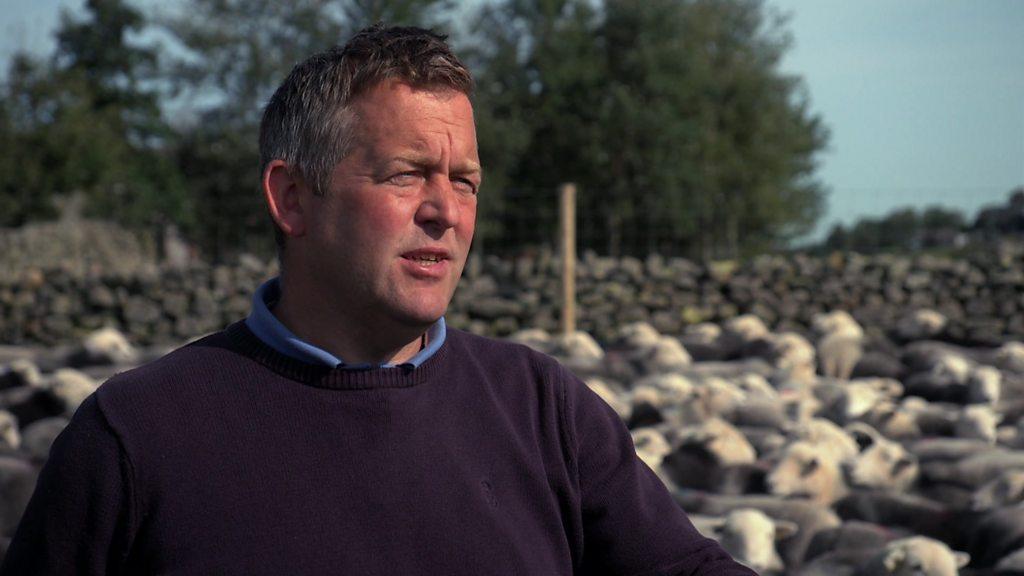Cumbria sheep farmers in fear of 'crippling' no-deal Brexit
- Published
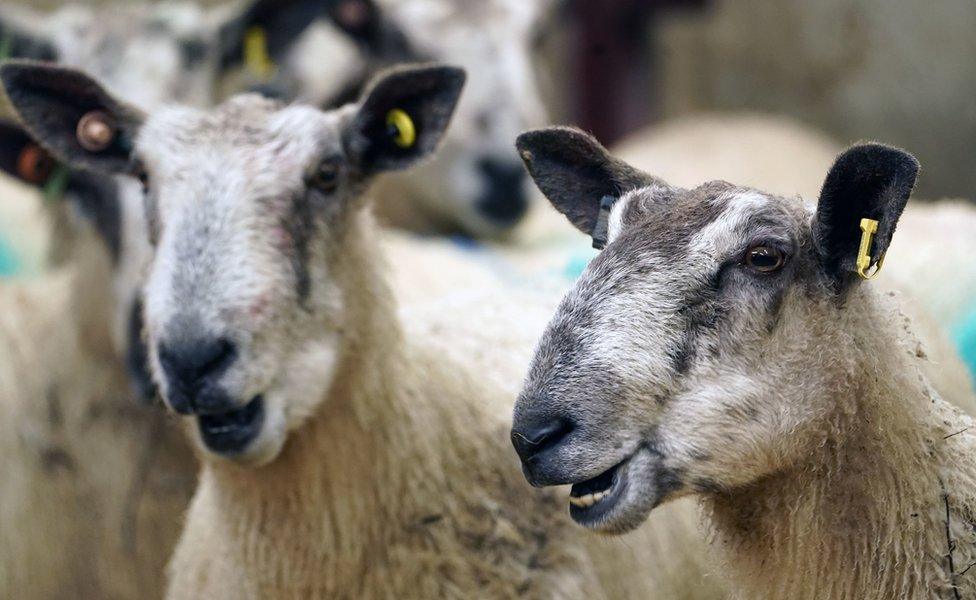
British lamb is seen as a premium product in the EU - but would continental consumers pay 48% more for it?
Cumbrian sheep farmers are warning a no-deal Brexit would be "absolutely crippling" for the sector.
A third of British lamb is exported and nearly all of this goes to the EU.
Keswick farmer Will Cockbain said: "If we leave with no deal and tariffs are applied, the tariff on lamb is 48% so that is absolutely crippling."
Thomas Carrick, a hill farmer from Alston Moor, agreed it "doesn't take a genius to understand it's going to have some serious consequences".
He believes the value of his 2,000 Swaledale and Leicester sheep could drop by a third.
The 37-year-old father of four said other industries in the supply chain, such animal health, mechanics and machinery dealerships, would also be affected.
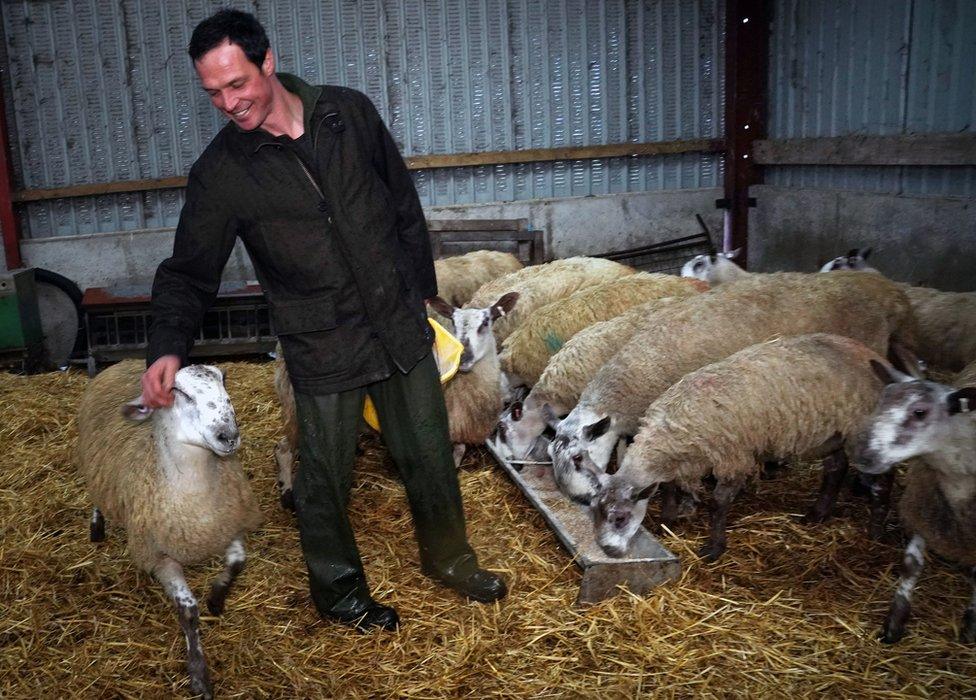
Thomas Carrick says he watches the news every day "very closely"
With negotiations about the terms of the UK's trade with the EU after 1 January going down to the wire, many farmers are anxious about the future.
Without a deal allowing trade to continue free of tariffs (import taxes), the UK and the EU would have to follow rules set out by the World Trade Organization (WTO).
Meat and dairy products attract particularly high tariffs.
Nathan Allen, who farms both sheep and beef cattle at Winster, near Windermere, wants a deal "so we can still export our food and we have control of the tariffs and our market".
But he also voted for Brexit because he wanted control over where he sold his meat.
"I feel like the governments are giving the supermarkets too much control," he said.
"They're allowing New Zealand lamb and Polish beef to come in to this country and they're pushing British products out and we're having to sell abroad.
"I want our food to stop in our country and provide for our own nation."
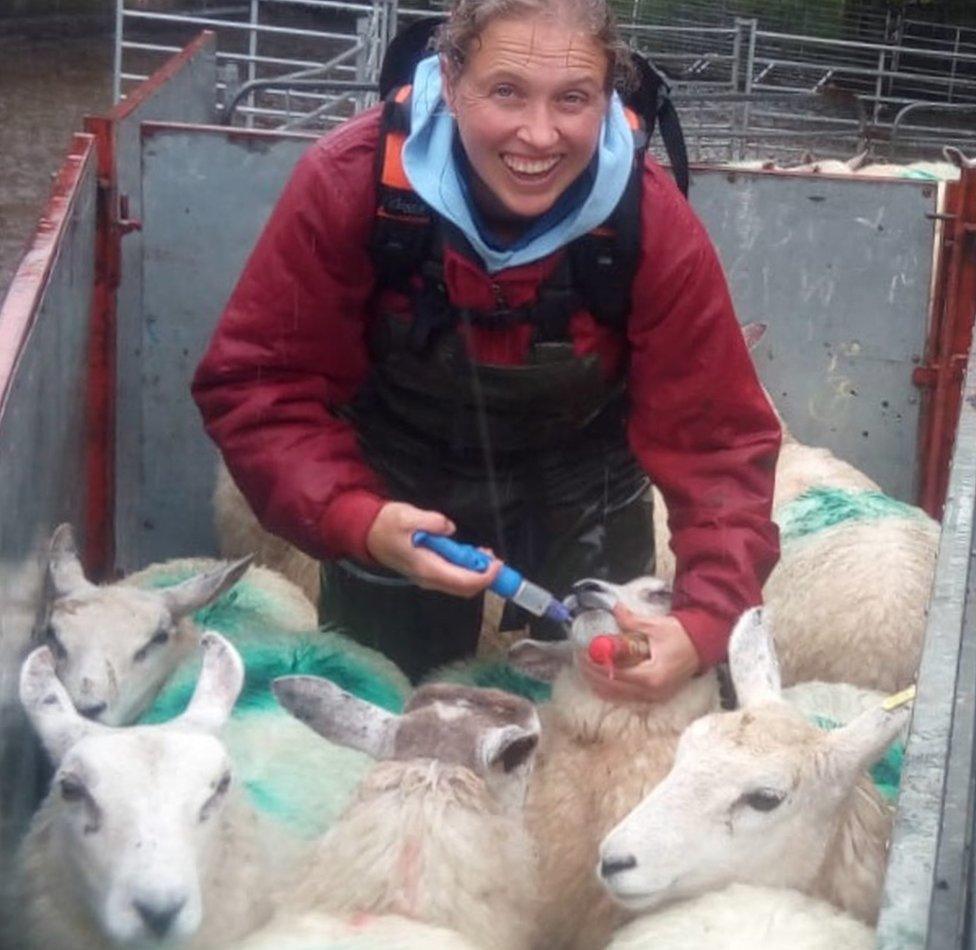
Jenny Bowes has only been farming for four years
Jenny Bowes, who only recently moved to Ghyll Bank Farm in Raisbeck, is worried a no-deal Brexit would have an environmental impact.
"People may look elsewhere and start a global lamb merry-go-round which will produce a huge carbon footprint," she said.
She believes a price war would then encourage factory farming.
But the uncertainty was farming's current problem, as the industry relies heavily on planning ahead, she said.
"Certain decisions on our farm we make months and months in advance, sometimes up to a year," she said.
"By now most of British farmers will have already had their ewes tupped, so made them pregnant, ready for next year, not knowing if they're going to be able to sell the lambs."

Follow BBC North East & Cumbria on Twitter, external, Facebook, external and Instagram, external. Send your story ideas to northeastandcumbria@bbc.co.uk, external.
- Published16 December 2020
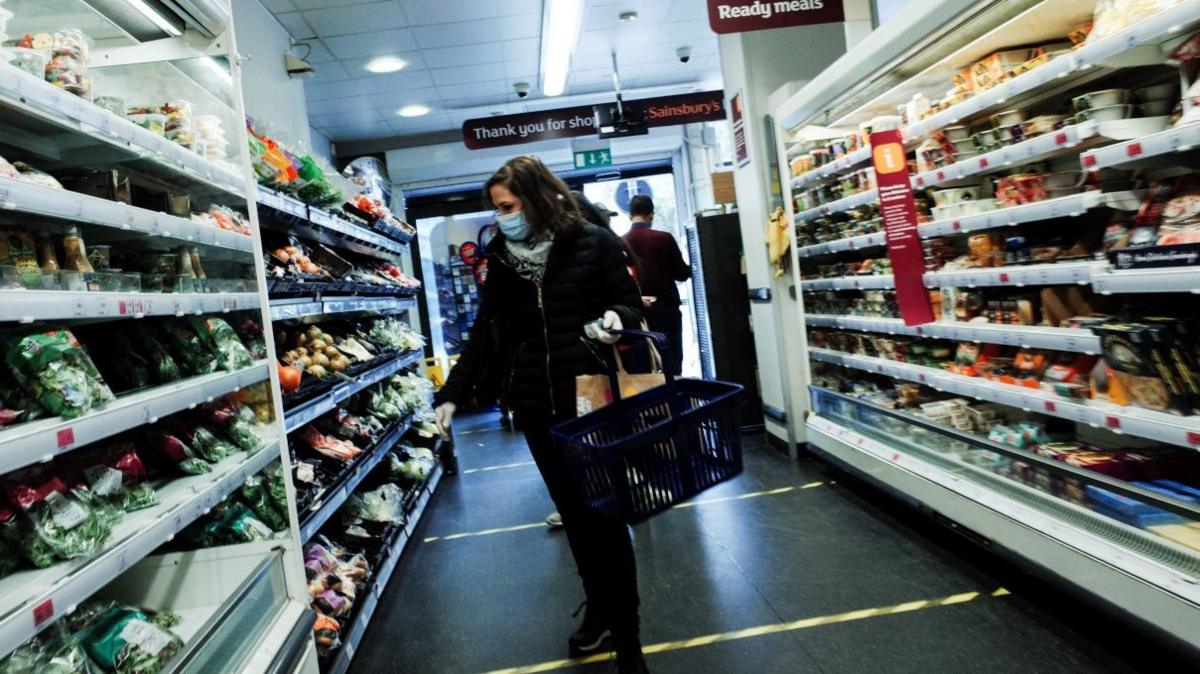
- Published13 December 2020
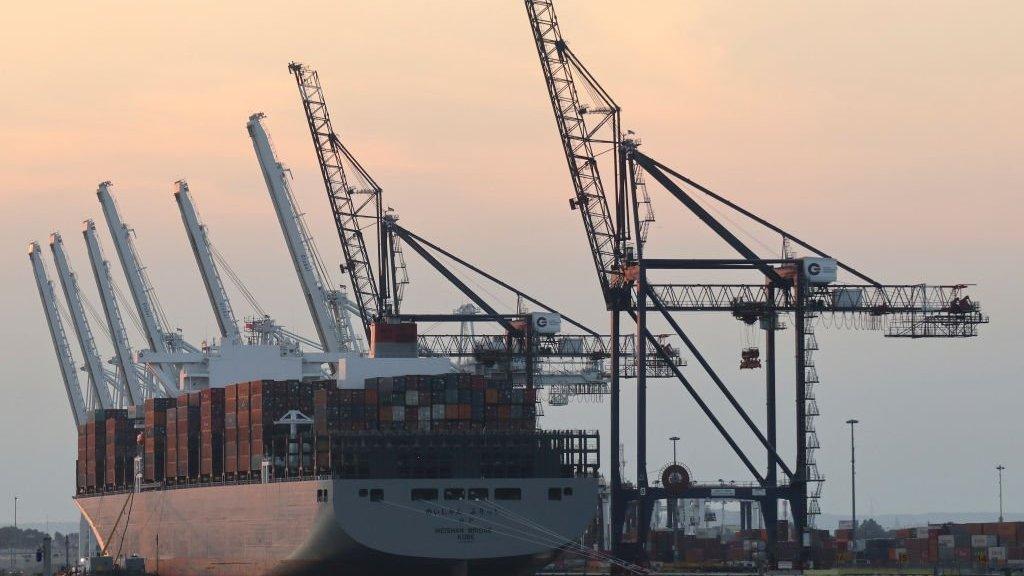
- Published13 December 2020
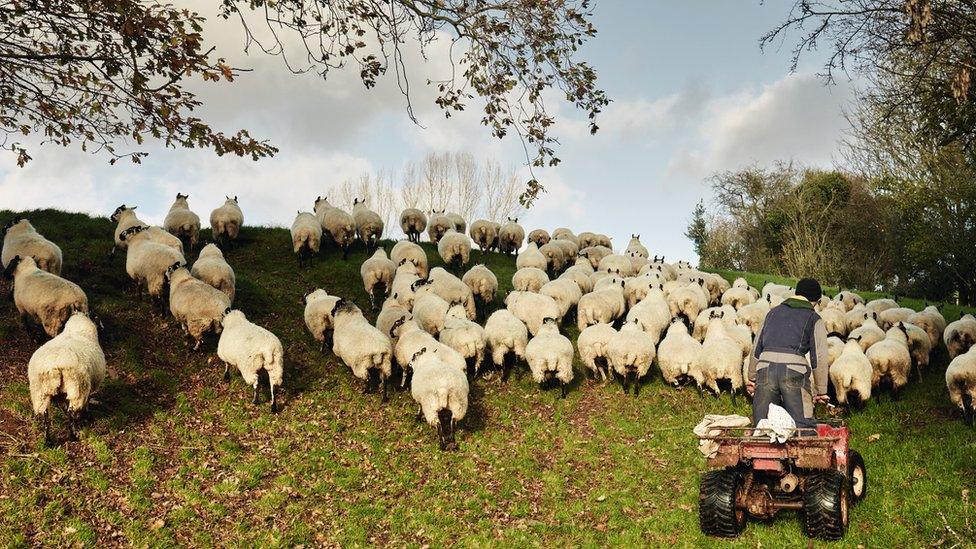
- Published6 December 2020
- Published5 October 2020
